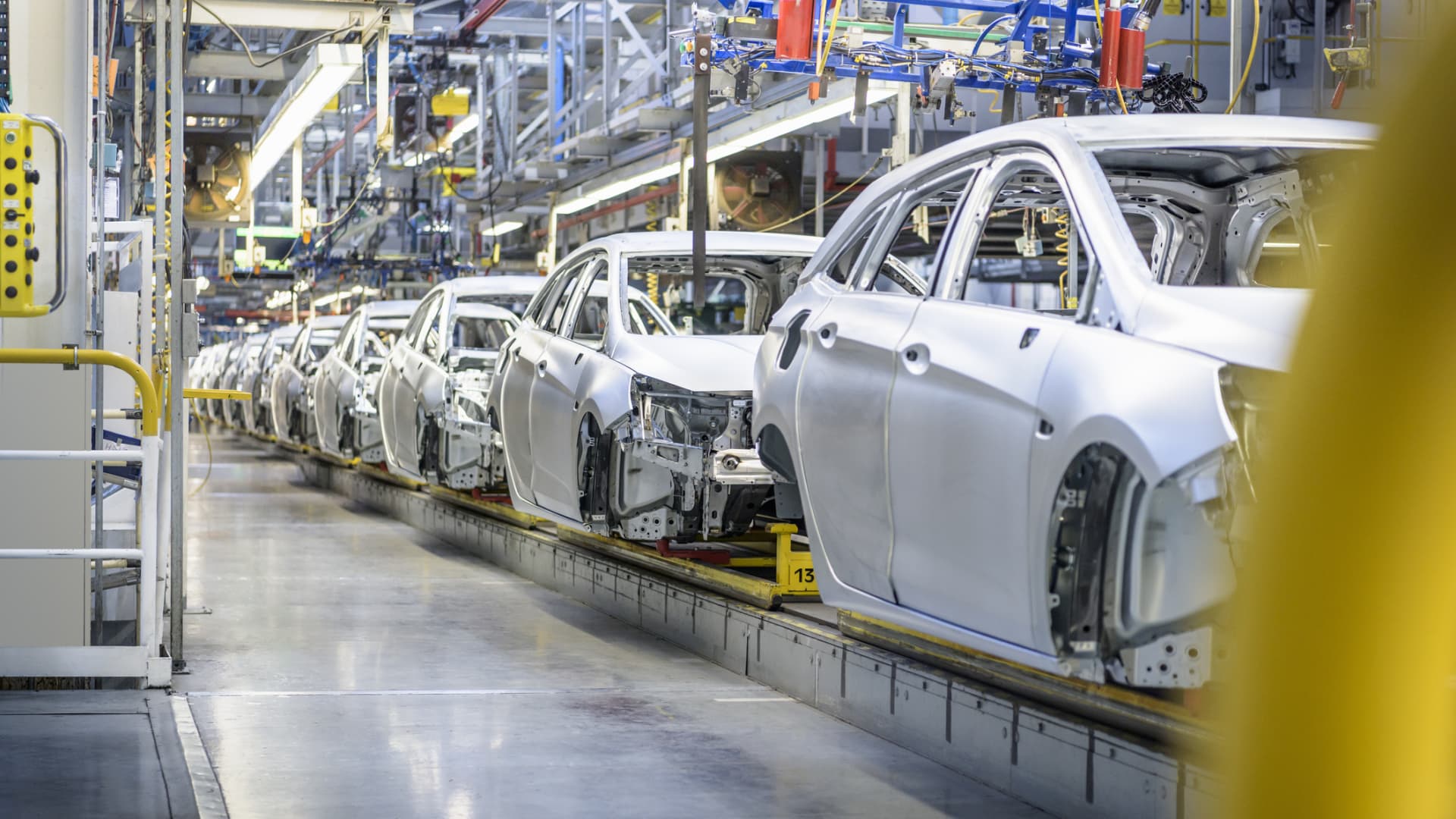Russia’s invasion of Ukraine has led auto industry watchers to cut production and sales forecasts for the next two years. The crisis has shuttered factories in Eastern Europe, and caused spikes in the prices of already precious raw materials.
Some factories in Ukraine have tried to keep going amid the invasion. Workers have reportedly had to break from work to flee rocket fire.
In March, S&P Global Mobility, formerly IHS Markit, cut its global auto production forecast by 2.6 million vehicles in both 2022 and 2023 because of the conflict. The worst-case scenario totaled as much as 4 million lost vehicles.
European auto output is expected to fall about 9% — roughly 1 million cars.
Some of that will be due directly to lost auto sales in Russia and Ukraine, but those countries together form a small share of the global automotive market — about 2% of the total in 2021.
The bigger concern is the shortages of materials and parts that are already hitting European automakers and, the report warned, could spread to other markets if the war continues.
Separately, credit analysts at S&P Global Ratings also forecast that in 2022 global auto sales will drop 2% below 2021 levels. That is a significant decline from the 4%-6% rise in sales for 2022 that the group had last predicted in October 2021.
The report highlighted disruptions to the supply of critical automotive parts from the region, perhaps most notably wire harnesses from Ukraine. At risk also are raw materials — Russia produces about 40% of the world’s raw palladium — which is used to clean vehicle exhaust. The region is also a producer of nickel, which is used in electric vehicle batteries. Even common minerals and metals, such as iron, are affected.
All of these are key materials used to make cars.
Watch the video to learn more.

buy ivermectin 12mg for humans – order candesartan 16mg generic carbamazepine price
generic accutane 40mg – generic zyvox 600 mg oral zyvox 600 mg
buy amoxil online – buy combivent pill ipratropium cheap
buy zithromax for sale – bystolic 20mg cheap buy nebivolol no prescription
order lasix 100mg generic – buy lasix sale purchase betamethasone for sale
cost acticlate – glucotrol 5mg ca glucotrol cost
zanaflex tablet – order tizanidine 2mg purchase hydrochlorothiazide online cheap
tadalafil 40mg pills – cost cialis 20mg buy generic sildenafil 50mg
order viagra 100mg online cheap – tadalafil 40mg tablet cheap tadalafil 40mg
buy cenforce 100mg online cheap – metformin over the counter metformin 1000mg usa
order prilosec online cheap – buy prilosec generic tenormin 50mg brand
order depo-medrol generic – buy medrol tablets aristocort price
misoprostol cheap – purchase misoprostol for sale diltiazem usa
how to get acyclovir without a prescription – order allopurinol 100mg sale rosuvastatin 20mg brand
motilium over the counter – sumycin 250mg uk cyclobenzaprine pill
inderal 10mg cheap – buy plavix generic buy methotrexate 10mg
purchase warfarin without prescription – coumadin 5mg generic cozaar 50mg cheap
levofloxacin medication – oral avodart 0.5mg zantac 150mg without prescription
mobic over the counter – purchase celebrex online cheap tamsulosin ca